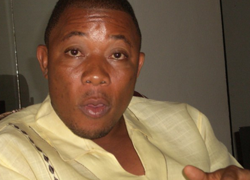
As previously blogged, former Liberian president Charles Taylor is sitting in jail awaiting judgment for his involvement in the egregious crimes committed by rebel forces in Sierra Leone. His son, Chuckie Taylor, has already been convicted by a Miami Federal Court for acts of torture committed while running a squad of henchmen for his dad in Liberia. His was the first case under the torture statute that extends jurisdiction to US citizens committing torture abroad. The two cases will highlight the vast differences between domestic and international criminal sentencing.
The Miami Federal Court judge sentenced Chuckie to 97 years. Charles, on the other hand, if convicted, will be sentenced by an international tribunal, the Special Court for Sierra Leone (SCSL). The longest sentence issued to date at the SCSL is 52 years to Issa Sesay. I predict that Charles will get something less than Sesay, or in other words, something less than half of what Chuckie received. Charles is accused of a range of crime far more extensive and brutal than Chuckie. He is allegedly responsible for a country-wide campaign of terror and brutality over a vast portion of Sierra Leone over a five year period. At least 50,000 were murdered, suffered amputations, subjected to years of slavery, sexual violence and various child soldier offenses. Chuckie was charged with a comparatively narrow range of crimes that focuses on the torture of seven victims.
The situation raises many questions for me. Is it fair for Charles to get a more lenient sentence than his son in this circumstance? Or is Chuckie’s sentence too severe? Does the international community owe an explanation to Sierra Leone? Will the expected disparity say more about US criminal sentencing or more about international criminal sentencing?


